The keeper of the epic soul of the Central Highlands
Epics have long been known as an indispensable spiritual “food” for the Ba Na and Jrai people. Epics are closely associated with community life, deeply reflecting all aspects of society, from people, nature, to the supreme beings who control all aspects of life.
Each song has meaning in life "like rivers have water, like trees have forests". Depending on the circumstances, the epic has crept into every house, every field. Then, the music just goes deep into the belly, deep into the heart so that the epic is now flesh and blood, a part of the life of the people of the Central Highlands.
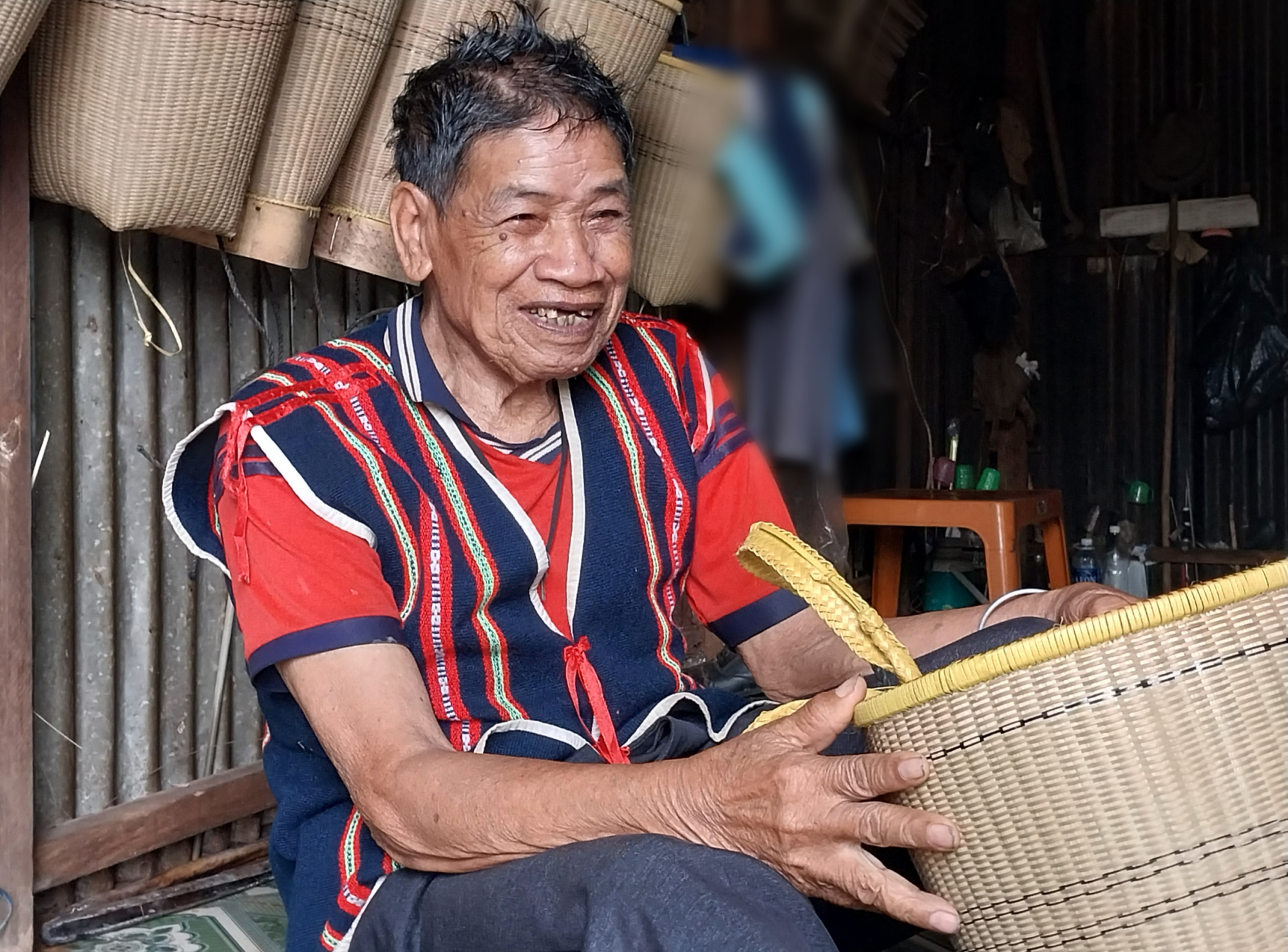
Mr. Dach, the "living treasure" of the Jrai and Ba Na epics
In the flow of culture of the Central Highlands ethnic groups, artisans have always silently and diligently "spread the fire" everywhere with the hope that the epic will have a certain place, as a spiritual support for the village and community.
One of the artisans who tirelessly preserves the soul of the Central Highlands epic day and night is Mr. Dach (a Ba Na ethnic in Ia Bang commune). No one would have thought that this year Mr. Dach would be 108 years old, because every day he still goes to cut bamboo and rattan to weave baskets. Moreover, at this age, he should be relying on his children and grandchildren, but he still works tirelessly (playing a basket).
What is most special is his strong voice. Mr. Dach's voice is sometimes deep and calm like the confidences of a young couple, sometimes resounding and majestic like a call from a high mountain. Each song, each melody of him is still very clear, seamless, and warm, resonating among the vast mountains and forests even though he is 108 years old.
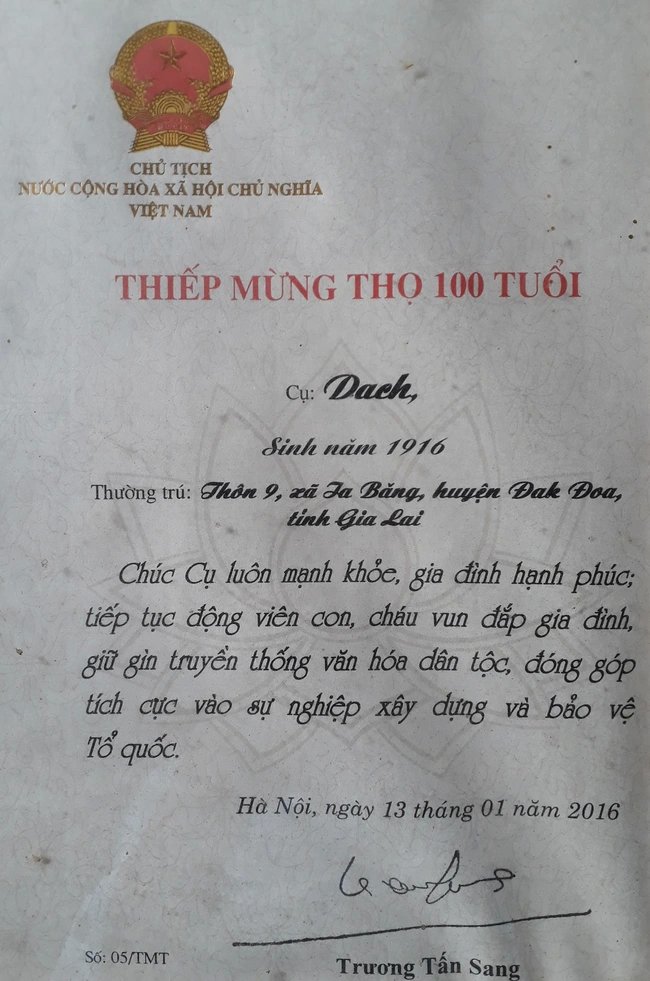
Dach's 100th birthday card in 2016, he is now 108 years old
According to the story, Mr. Dach knew the epic since he was a child, passed down by his uncle, and it has been ingrained in his blood and flesh for hundreds of years. His uncle's singing, sometimes deep, sometimes high, sometimes fast, sometimes slow, was like a sweet song that lulled Dach into deep sleep, like the mother's milk that nourished the boy day by day.
When he grew up, he could recite and sing dozens of epic poems of the Ba Na and Jrai ethnic groups. In each song and each story, he also understood thoroughly the precious values and meanings contained therein.
The song he sang most often was “Dam Blom” – a legendary epic of the Jrai people. The song carries the message “good deeds will be rewarded, if you live honestly, you will meet good things”. This is also the song that he often sings to teach his children and grandchildren in the house as well as in the village to recognize the good and stay away from the bad. Just like that, the music penetrated deep into his stomach, penetrated deep into his heart so that the epic is now flesh and blood, a part of his life.

Mr. Dach is singing the song "Dam Blom" - the legendary epic of the Jrai people.
“Epics are very difficult to learn because the singers and narrators must have a good memory, a good voice, and a steady breath because there are long verses, a rhythm that is sometimes fast, sometimes slow, sometimes high, sometimes low. In addition, to convey the meaning, the singer must also show facial expressions…”, said Mr. Dach.
The epic narrator's feelings
Realizing the importance of promoting and transmitting the cultural values of Jrai and Ba Na epics, from his youth until now, at the age of 108, Mr. Dach has not been afraid of difficulties or hardships, singing and telling epics every day to convey these unique cultural "heritages" to the younger generation.
However, what worries him the most is that young people are not interested in epics, or even do not want to learn them, and no one likes to learn epics, but instead prefers modern music. Even more sad is that none of Dach's children and grandchildren want to learn to sing or recite epics.
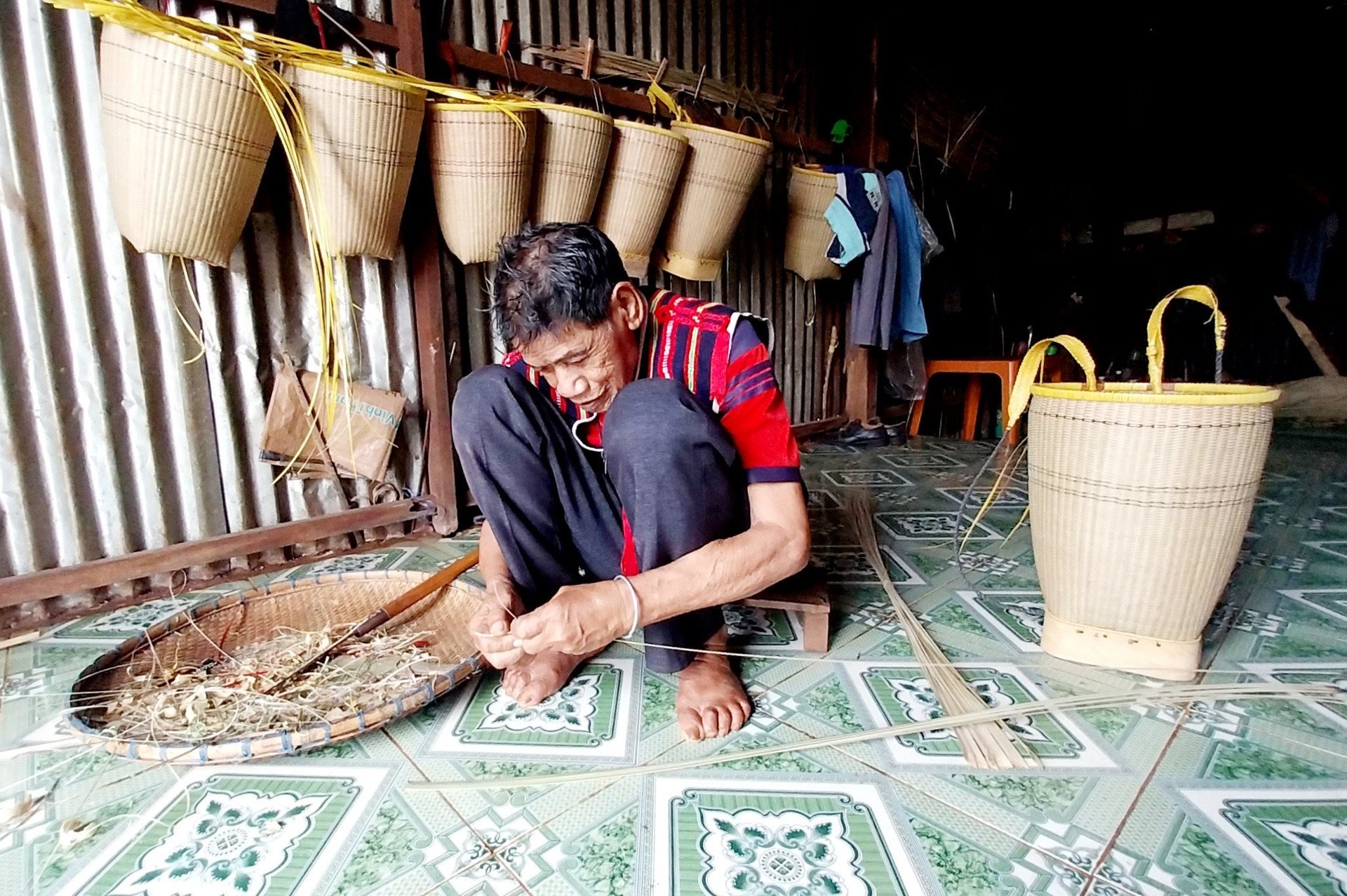
Even though it has been 108 farming seasons, Mr. Dach still goes out every day to cut bamboo and weave baskets to sell.
"He has 6 children and more than 20 grandchildren, but no one wants to learn epics. When he taught his children and grandchildren to sing epics, they said that epics were difficult to memorize and sing. They only liked to listen to modern music. Before that, there was a person the same age as him who also knew how to sing epics, but he passed away. Although he really wanted to pass on epic songs to his children and grandchildren in the village, no one learned them. I don't know who will be the one to pass away. on, sing, and tell the next generation the epic stories that are imbued with the cultural values of our people,” Mr. Dach confided.
Mr. Ra Lan Bong (son of Mr. Dach) said: "When I was young, my father often told and sang epics to me. The epics my father told were mostly toeducate his children to study hard and work hard. I cannot sing epics like my father because it requires many factors, but I still remember and can tell a few epic mythological stories."
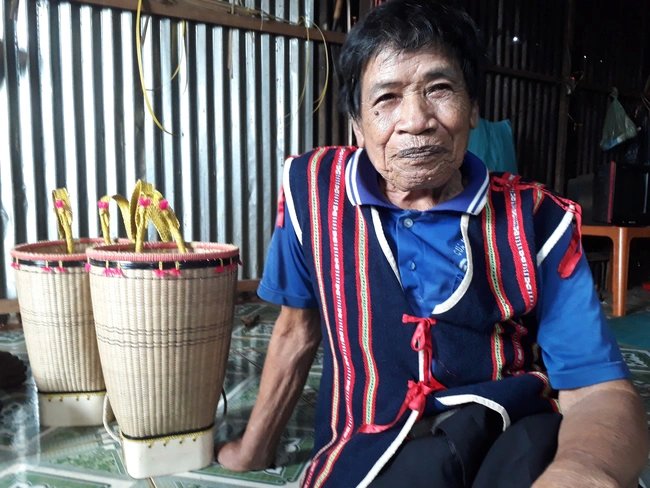
What worries Mr. Dach most is that young people are not interested in epics.
Mr. Siu Lol (head of Thong Prong Thong village, Ia Bang commune) said: “Although he is about to turn 108, Mr. Dach still walks and lives normally. In addition to receiving attention, help and support from the Party and State in accordance with regulations, he also weaves baskets to earn extra income. In the village, from old to young, everyone loves him, a shining example of dedication to the eternal epic.”
Source


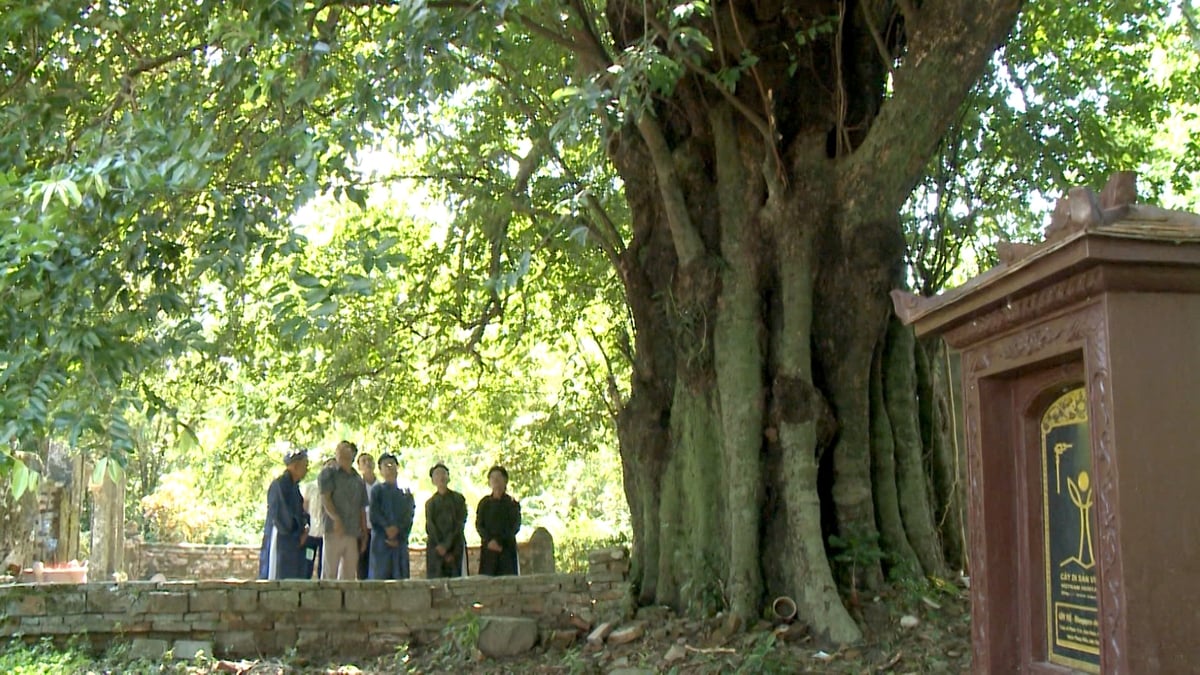










































































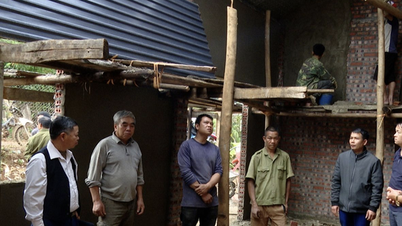
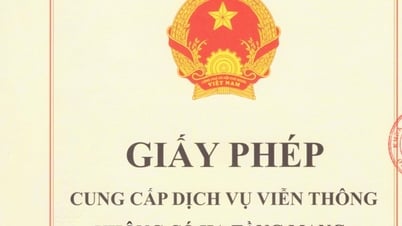



























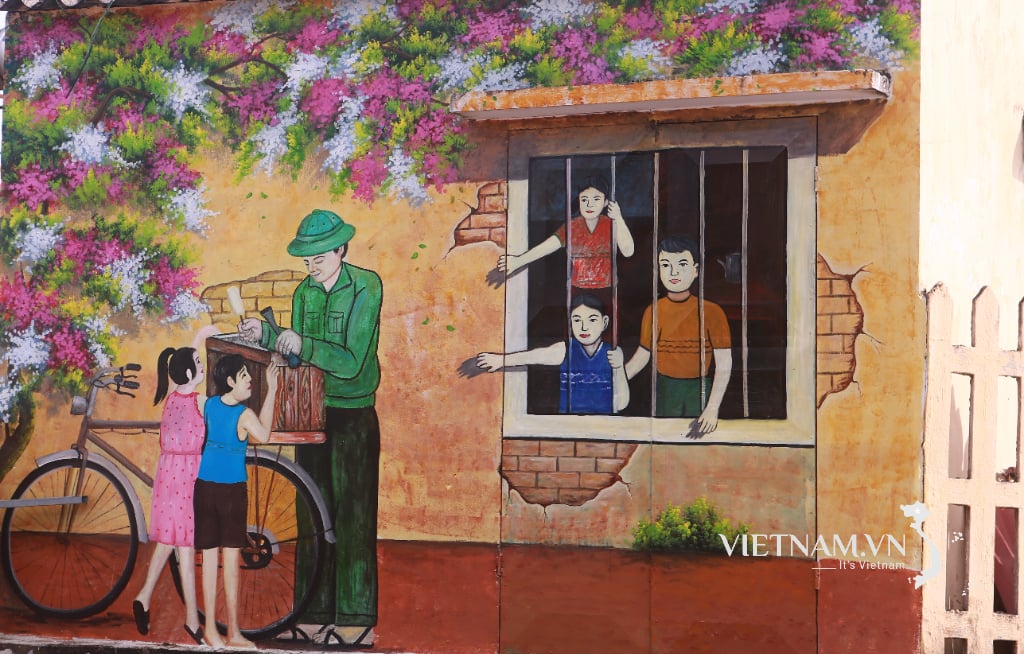
Comment (0)